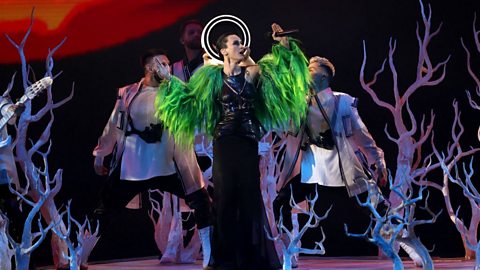The Eurovision Song Contest is coming to Liverpool for the first time in the competitionâs history.
Held on the banks of the River Mersey on behalf of reigning champions Ukraine, itâs not the first time the city has been involved with the event. There have been many connections between Liverpool and Eurovision over the decades, but were you expecting any of those links to hail from countries such as Switzerland, Germany and Sweden? Read on for a few Scouse-flavoured revelations.
Liverpoolâs twinning with a Ukrainian city
For the first time since 1980, Eurovision is not hosted by the reigning champion. Following Kalush Orchestraâs victory for Ukraine in 2022, the eventâs organisers, the European Broadcasting Union (EBU) announced that the ongoing conflict made it impossible to stage the competition there. It may not be a direct Eurovision connection that led to Liverpool hosting, but there is a solid one with Ukraine which saw support for Merseyside's bid from almost 2,000 miles away.
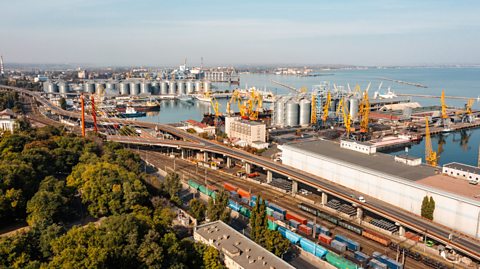
On 25 July 2022, it was formally announced that runners-up the United Kingdom would take on hosting responsibilities, and the host city search began. Liverpool received backing from the Mayor of Odessa, Gennadiy Trukhanov, who said in a message: âLet the songs of the entire Europe ring over the river Mersey.â This endorsement didnât spring from nowhere; Liverpool and Odessa have been twin cities since the 1950s, part of the policy for UK cities to build strong relations with their European neighbours following the Second World War.
Twin cities usually have something in common, such as geography or industry. Odessa, a port city on the Black Sea and the third largest city in Ukraine, has maritime links similar to Liverpool.
When Eurovision was last held in Ukraine in 2017, Odessa was one of three shortlisted cities to stage the event, before capital Kyiv was announced as host. It may not be a direct Eurovision connection that led to Liverpool hosting, but there is a solid one with last year's winning nation which saw support for Merseyside's bid from almost 2,000 miles away.
Eurovision nations really want to sing about Liverpool
Liverpool has a global reputation as a musical powerhouse. The Beatles, Frankie Goes to Hollywood, OMD, Flock of Seagulls, Elvis Costello and The Lightning Seeds are just some of the Merseyside acts to make an international impact.
Could this be why countries beyond the UK want to sing about the city and its stars at Eurovision? There have been at least three examples so far.
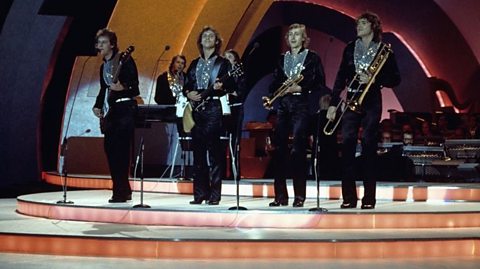
The earliest came in 1975 when the band I Nuovi Angeli (The New Angels) attempted to represent Switzerland with a song called simply Liverpool. The single version of the synth-based track starts - perhaps surprisingly - with the sound of boat horns on a river and someone coughing. It finished fifth in the Swiss domestic heat.
Three years later, another Liverpool almost made it to Eurovision. The band Sunrise was runner-up in the 1978 German heat (by 0.22 points!) to London-born Ireen Sheer and her song Feuer (Fire). Sunriseâs Liverpool is a jaunty sing-a-long which namechecks The Beatlesâ John, Paul, George and Ringo, mentions rockânâroll and the classic ballad Yesterday. Ireenâs flaming tune finished a creditable sixth at the Eurovision final in Paris, so Feuer wasnât a bad choice at all.
But one song with a strong Scouse connection did make it to Eurovision. In 1977, Sweden fielded the band Forbes in London with their song Beatles. Although Liverpool isnât explicitly referenced in its lyrics, all four members of the titular band are, along with their hits A Hard Dayâs Night and, as Sunrise would mention a year later, Yesterday. Sadly for Forbes, Beatles finished last.
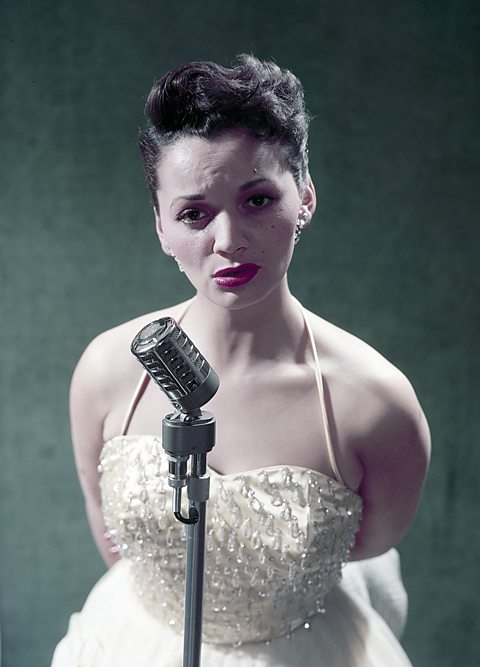
Liverpool acts representing the UK
The UK first entered Eurovision in 1957, a year after the Contest began. The debut song and singer would be decided via a series of ±«Óătv TV heats called the Festival of British Popular Songs. Among those taking part was Lita Roza, the Liverpool-born singer who was the first British woman (and first person from Merseyside) to have a UK number one hit with How Much is that Doggie in the Window? in 1953. At the Eurovision qualifier, more than one artist performed each song and Lita sang a version of the third-placed composition Thatâs the Way it Goes. She entered the UK heats in 1959 and 1960, but never made it to the Contest proper.
Fast forward 23 years to Eurovision 1980. The UK was represented by the group Prima Donna whose members included Wirral-raised sisters Kate and Jane Robbins. At the domestic qualifier, Prima Donna faced a nail-biting tie break with Maggie Mooneâs Happy Everything before they were cleared to sing at The Hague in the Netherlands, where their song Love Enough for Two finished third to Irelandâs Johnny Logan and Whatâs Another Year.
The strongest Liverpool showing in Eurovision history happened on 15 May 1993, when established hitmaker Sonia represented the UK in Millstreet, Ireland, with the bouncy Better the Devil You Know. Despite holding the lead for a lengthy part of the voting sequence, the UKâs 12 points to the host nation saw Sonia slip into second place with seven countries still to give their scores. She never regained her advantage and although there was a chance to snatch the crown on the final vote of the evening, Sonia eventually took silver - 23 points behind Irish champ Niamh Kavanagh.
Liverpoolâs other big moment on the Eurovision stage was a very different affair. Jemini were the duo Chris Cromby and Gemma Abbey who had been singing together since meeting at a Liverpool stage school. They competed in 2003 with Cry Baby in Riga, Latvia, and failed to receive a single point, the first time the UK had ever finished in last place. In the post-Contest analysis, some commentators pointed to the UKâs involvement in the war with Iraq as a reason for the poor result, while others noted that the performance was off-key. Either way, it was the last significant milestone in Liverpoolâs Eurovision history before becoming host city for 2023.
This article was published in May 2023

Spotting cultural references in Eurovision
The meanings behind the glitter, ballads and pyrotechnics.
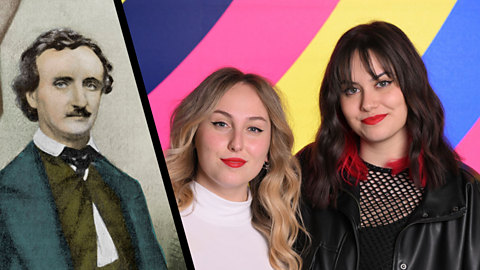
Can you take on the Eurovision big numbers quiz?
How well do you know the facts and figures of Eurovision? Take the quiz to find out!

Seven Eurovision facts to make you sound like an expert
Test your musical knowledge with these seven fun Eurovision facts - do you know them all?
